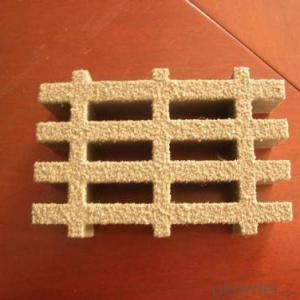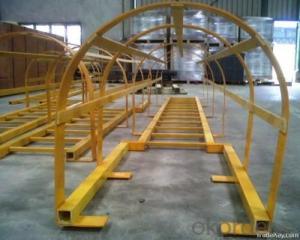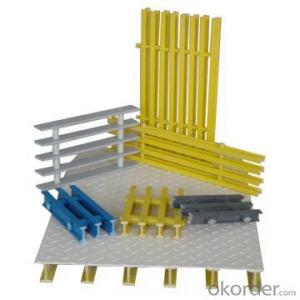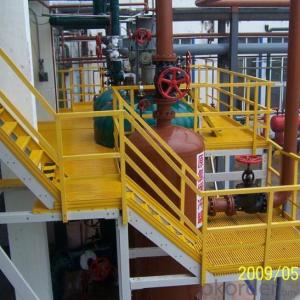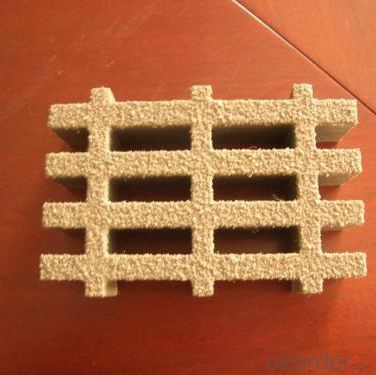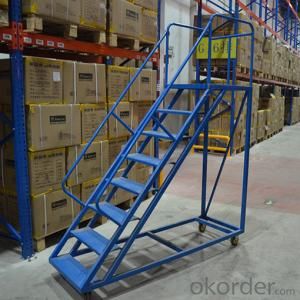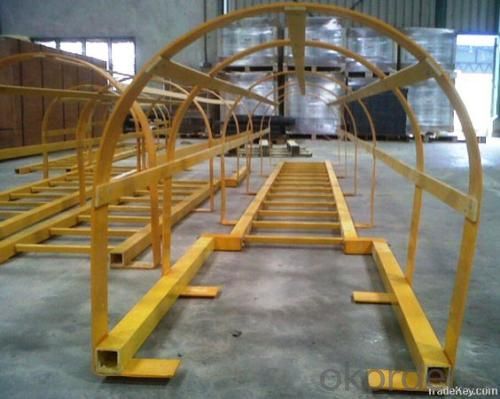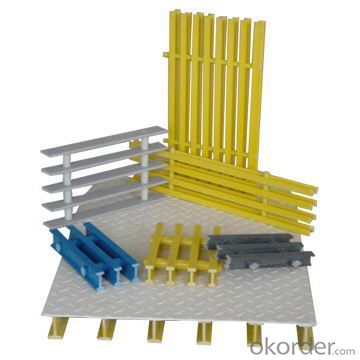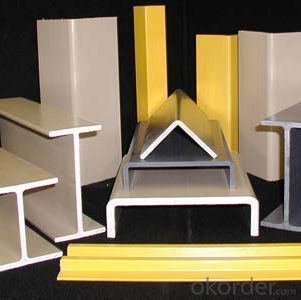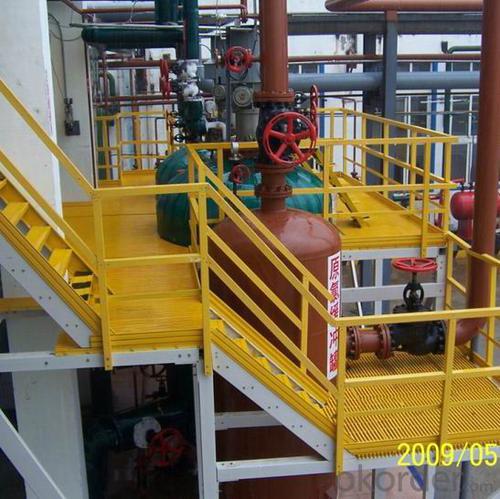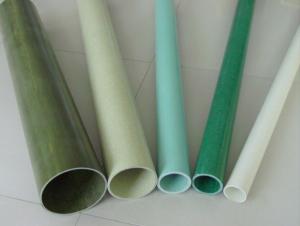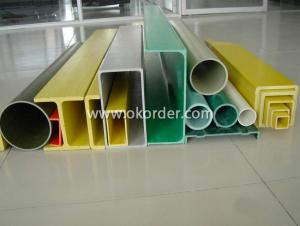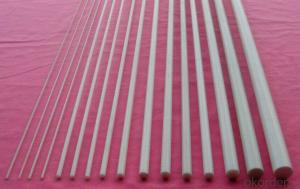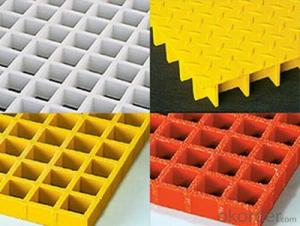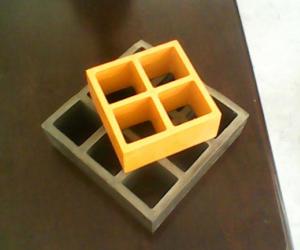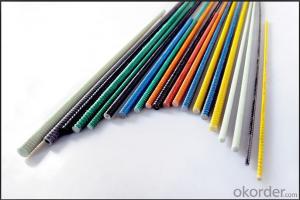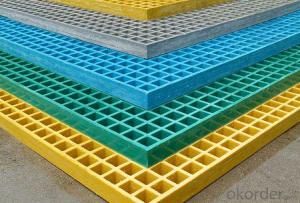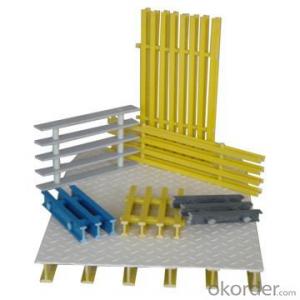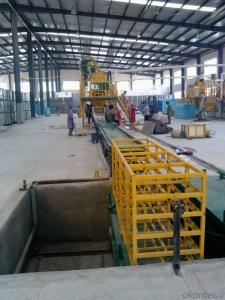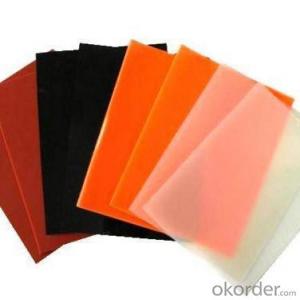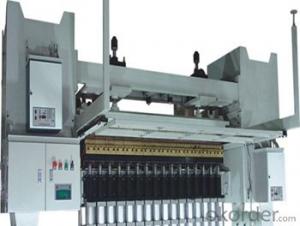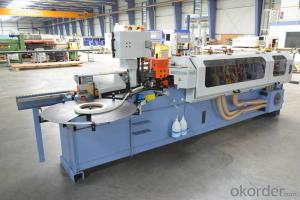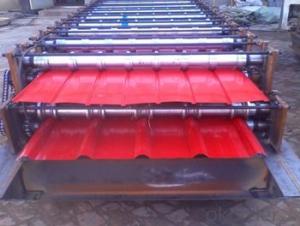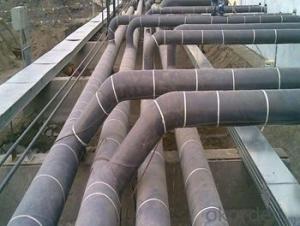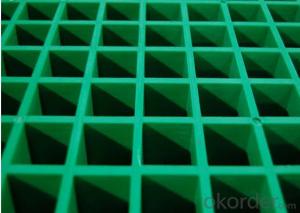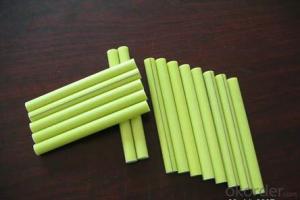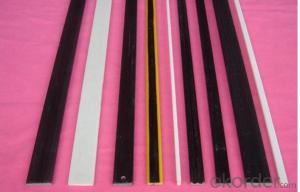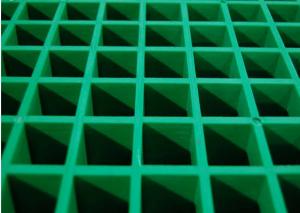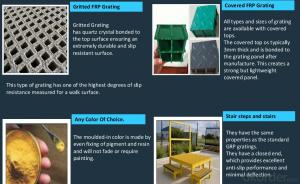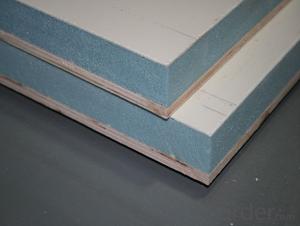FRP Pultrusion Profiles with Excellent Electromagnetism Property
- Loading Port:
- Tianjin
- Payment Terms:
- TT OR LC
- Min Order Qty:
- 20000 m.t.
- Supply Capability:
- 50000 m.t./month
OKorder Service Pledge
OKorder Financial Service
You Might Also Like
Specification
FRP PULTRUDED GRATING AND PULTRUSION PROCESS
PRODUCT DESCRIPTION
Pultruded grating is made by a particular assembly process, which using “I” shape as its main load-bearing and special rod to go through the bearing bar. Pultruded grating include the standard grating and the custom grating, the custom grating can be designed to meet customer’s requirement or special using condition by changing the shape, size and space of the bearing bars, the surface can be covered with lozenge panel, grit panel, or added the anti-slippery sand directly.
SPECIFICATION
The standard space between two crossbars is 6 inch or 12 inch.
Thickness (mm) | Bar width (mm) | Open space (mm) | Open rate (%) | Approx weight (kg/m |
25.4 | 15.2 | 22.8 | 60 | 13.2 |
25.4 | 15.2 | 15.2 | 50 | 15.9 |
25.4 | 15.2 | 10.1 | 40 | 18.5 |
25.4 | 40 | 10.8 | 21 | 14.5 |
38.1 | 15.2 | 22.8 | 60 | 15.8 |
38.1 | 15.2 | 15.2 | 50 | 19.1 |
38.1 | 15.2 | 10.1 | 40 | 22.4 |
50.8 | 25.4 | 25.4 | 50 | 16.6 |
50.8 | 25.4 | 12.7 | 33 | 21.1 |
CHOICE FOR PULTRUDED GRATING
Resin: GP resin, ISO resin, VE resin, Phenol resin
Color choice: Yellow, gray, green, custom color
Surface choice: Groove surface, grit surface, lozenge cover surface
FEATURES
a. Anti-corrosion and anti-rust
b. Light weight and high strength
c. Anti-flammable
d. Anti- fatigue
e. Safe and anti-slippery
f. Anti-ageing
g. Easy of maintenance
h. Excellent electromagnetism property
i. Good economic benefit
FIELDS SERVED
Sewage treatment,
water supply and drainage,
chemical industry,
oil industry,
power engineering,
pulp and paper,
construction engineering,
spinning, marine engineering.
APPLICATION
Operation terrace,
stair walkway,
ground floor,
trench cover,
sidewalk,
foot bridge,
equipment safety fence,
scaffold.
COMPANT DESCRIPTION
CNBM,China National Building Materials Group is a state-owned enterprise in charge of administrative affairs in china building materials industry. Established in 1984, CNBM is a large group corporation of building materials with total assets of 25 billion RMB and a total staff of 30,000.CNBM now owns 200 subordinating firms of solely owned and joint-venture companies.
CNBM International Corporation is one subsidiary of CNBM, we focus on offering good-quality products,professional service and complete solution to our customers. Strong delivery capacity, advanced technology& management, strong financing capability and excellent after-sale service are our advantages in sharing international market.
FAQ
1.Q:Are you factory or trading company ?
A:We are Factory produce FRP machines and FRP products.
2.Q:If can customized by customers requirements?
A:yes,we can produce the machine with customized size.
3.Q:How about the payment?
A:We accept any kind of payment.
4.Q:What is the guarantee?
A:Gurantee is one year.
5.Q:If you can training?
A:yes ,we can training in our factory also can send engineers to your factory training.
PICTURES
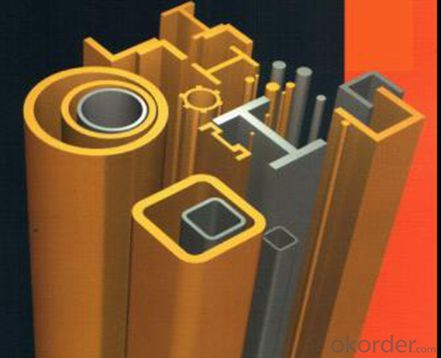
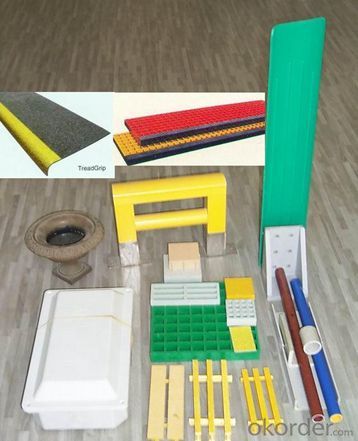
- Q: What are the typical applications for FRP pultrusion profiles?
- FRP (Fiber Reinforced Plastic) pultrusion profiles find a wide range of applications across various industries. One of the most common uses is in the construction industry, where these profiles are used for structural components such as beams, columns, and platforms. They offer high strength-to-weight ratio, corrosion resistance, and durability, making them ideal for building infrastructure that requires long-lasting, low-maintenance solutions. In the transportation sector, FRP pultrusion profiles are used for manufacturing lightweight components like bus and truck bodies, railcar panels, and wind turbine blades. Their lightweight nature helps reduce fuel consumption and increase energy efficiency. Moreover, their resistance to chemicals, moisture, and UV radiation ensures their longevity even in harsh operating environments. In the electrical and power distribution field, FRP pultrusion profiles are utilized for manufacturing insulating supports, cable trays, and ladder racks. These profiles provide excellent electrical insulation properties, making them a safe and reliable choice for electrical installations. Additionally, their non-conductive nature helps prevent electrical accidents and eliminates the risk of electric shock. FRP pultrusion profiles also find applications in the marine industry, where their resistance to saltwater corrosion makes them suitable for manufacturing boat hulls, decks, and other marine components. Their high strength and stiffness make them capable of withstanding the harsh conditions of the marine environment. Furthermore, FRP pultrusion profiles are used in the chemical processing industry for manufacturing tanks, pipes, and platforms. Their resistance to various chemicals and corrosive substances ensures the integrity of the equipment and enhances safety in chemical plants. Overall, the typical applications for FRP pultrusion profiles span across industries such as construction, transportation, electrical, marine, and chemical processing. Their unique properties make them a versatile and reliable choice for various structural and functional applications.
- Q: Are FRP pultrusion profiles resistant to electrical arcing?
- FRP pultrusion profiles are generally resistant to electrical arcing. This is because they are made from non-conductive materials like fiberglass reinforced plastic. These profiles do not conduct electricity, which makes them ideal for applications where electrical arcing or conductivity is a concern. However, it is important to note that the specific resistance to electrical arcing may vary depending on the specific composition and design of the FRP pultrusion profiles. It is recommended to consult with the manufacturer or supplier of the profiles to ensure they meet the required electrical resistance standards for a particular application.
- Q: Can FRP pultrusion profiles be used in the water treatment industry?
- Yes, FRP pultrusion profiles can be used in the water treatment industry. FRP (Fiber Reinforced Polymer) pultrusion profiles are known for their excellent corrosion resistance, high strength, and durability. These properties make them suitable for various applications in the water treatment industry. FRP pultrusion profiles can be used in the construction of water treatment tanks, pipes, and other infrastructure. They are resistant to chemicals, including the harsh chemicals often used in water treatment processes. This corrosion resistance ensures a longer lifespan for the equipment and reduces maintenance costs. Additionally, FRP pultrusion profiles have a high strength-to-weight ratio, making them ideal for applications that require lightweight yet strong materials. This allows for easier installation and transportation of water treatment equipment. Furthermore, FRP pultrusion profiles offer design flexibility. They can be manufactured in various shapes and sizes to meet specific project requirements. This allows for customization and optimization of water treatment systems, ensuring efficient and effective water treatment processes. Overall, FRP pultrusion profiles are a reliable and cost-effective choice for the water treatment industry. They provide excellent corrosion resistance, high strength, and design flexibility, making them suitable for various applications in water treatment systems.
- Q: Can FRP pultrusion profiles be used in the construction of conveyor systems?
- Yes, FRP (Fiber Reinforced Plastic) pultrusion profiles can be used in the construction of conveyor systems. FRP profiles offer several advantages such as high strength, lightweight, corrosion resistance, and durability, which make them suitable for conveyor applications. Additionally, FRP profiles can be easily customized to meet specific requirements, making them a versatile choice for conveyor system construction.
- Q: Can FRP pultrusion profiles be used in the construction of elevated walkways?
- Yes, FRP pultrusion profiles can be used in the construction of elevated walkways. FRP (Fiber Reinforced Polymer) pultrusion profiles offer several advantages such as high strength-to-weight ratio, corrosion resistance, and durability, making them suitable for various construction applications including elevated walkways. They are lightweight, yet strong enough to support pedestrian traffic and withstand environmental conditions. Additionally, FRP pultrusion profiles can be easily customized to meet specific design requirements, making them a popular choice in the construction industry.
- Q: Can FRP pultrusion profiles be used in telecommunications towers?
- Yes, FRP (Fiber Reinforced Polymer) pultrusion profiles can be used in telecommunications towers. FRP pultrusion profiles offer several advantages that make them suitable for this application. Firstly, FRP profiles are lightweight yet strong, allowing for easy installation and reduced structural weight in telecommunications towers. This is important as it helps to minimize the overall weight load on the tower structure. Secondly, FRP pultrusion profiles have excellent corrosion resistance properties, making them ideal for outdoor applications like telecommunications towers, which are exposed to various environmental conditions. Unlike traditional materials such as steel or wood, FRP profiles do not rust, rot, or degrade when exposed to moisture, UV radiation, or chemicals typically found in outdoor environments. Additionally, FRP pultrusion profiles offer excellent electrical insulation properties, which is crucial in telecommunications towers. These profiles do not conduct electricity, reducing the risk of electrical interference or short circuits that could disrupt the tower's communication systems. Furthermore, FRP pultrusion profiles can be manufactured in various shapes and sizes, allowing for customization and meeting specific design requirements of telecommunications towers. This versatility allows for better integration and compatibility with other tower components. Overall, the combination of lightweight, high strength, corrosion resistance, electrical insulation, and customization options make FRP pultrusion profiles a viable and advantageous choice for use in telecommunications towers.
- Q: Are FRP pultrusion profiles fire resistant?
- FRP pultrusion profiles exhibit excellent fire resistance due to the combination of reinforcing fibers and the polymer matrix employed in their production. These profiles are crafted through the pultrusion process, wherein reinforcing fibers like fiberglass or carbon fiber are impregnated with a thermosetting resin. This resin undergoes a curing process, resulting in a robust and durable composite material. One of the primary advantages of FRP pultrusion profiles lies in their inherent fire resistance. The thermosetting resin utilized in their manufacture possesses properties that render it highly impervious to fire. When subjected to flames or elevated temperatures, the resin does not easily burn or melt, thereby impeding the propagation of fire. Moreover, the reinforcing fibers present in FRP profiles contribute significantly to their fire resistance. For example, fiberglass, being an inorganic substance, does not combust. It serves as a heat transfer barrier, aiding in the containment of flames. Additionally, FRP pultrusion profiles can be engineered to meet specific fire safety standards and regulations. By incorporating supplementary fire retardant additives or employing specialized resin systems, the fire resistance of these profiles can be further enhanced. It is crucial to note that although FRP pultrusion profiles do possess fire resistance, their precise fire rating may vary depending on the particular composition and design. Thus, it is imperative to consult manufacturers or suppliers who can furnish comprehensive information regarding the fire resistance properties of their FRP pultrusion profiles.
- Q: How do FRP pultrusion profiles handle compression loads?
- FRP pultrusion profiles handle compression loads by utilizing their high strength-to-weight ratio and inherent stiffness. The resin matrix and reinforcing fibers in the pultruded composite material work together to distribute and transmit the compression force, ensuring that the profiles are able to withstand and bear the applied load. The specific design of the profiles, including the orientation and arrangement of the fibers, further enhances their ability to resist compression and maintain structural integrity.
- Q: Can FRP pultrusion profiles be used in the construction and building materials industry?
- Yes, FRP pultrusion profiles can be effectively used in the construction and building materials industry. These profiles offer several advantages such as high strength-to-weight ratio, corrosion resistance, and dimensional stability, making them suitable for a wide range of applications including structural elements, handrails, gratings, and reinforcements. Additionally, FRP pultrusion profiles can be easily customized to meet specific project requirements, making them a popular choice in the industry.
- Q: Are FRP pultrusion profiles resistant to chemicals used in power plants?
- Yes, FRP pultrusion profiles are highly resistant to chemicals commonly used in power plants. The composite materials used in their construction, such as fiberglass and resin, offer excellent resistance to corrosion and chemical attack. This makes FRP pultrusion profiles a durable and reliable choice for various applications in power plants, including structural components and equipment.
Send your message to us
FRP Pultrusion Profiles with Excellent Electromagnetism Property
- Loading Port:
- Tianjin
- Payment Terms:
- TT OR LC
- Min Order Qty:
- 20000 m.t.
- Supply Capability:
- 50000 m.t./month
OKorder Service Pledge
OKorder Financial Service
Similar products
Hot products
Hot Searches
Related keywords
